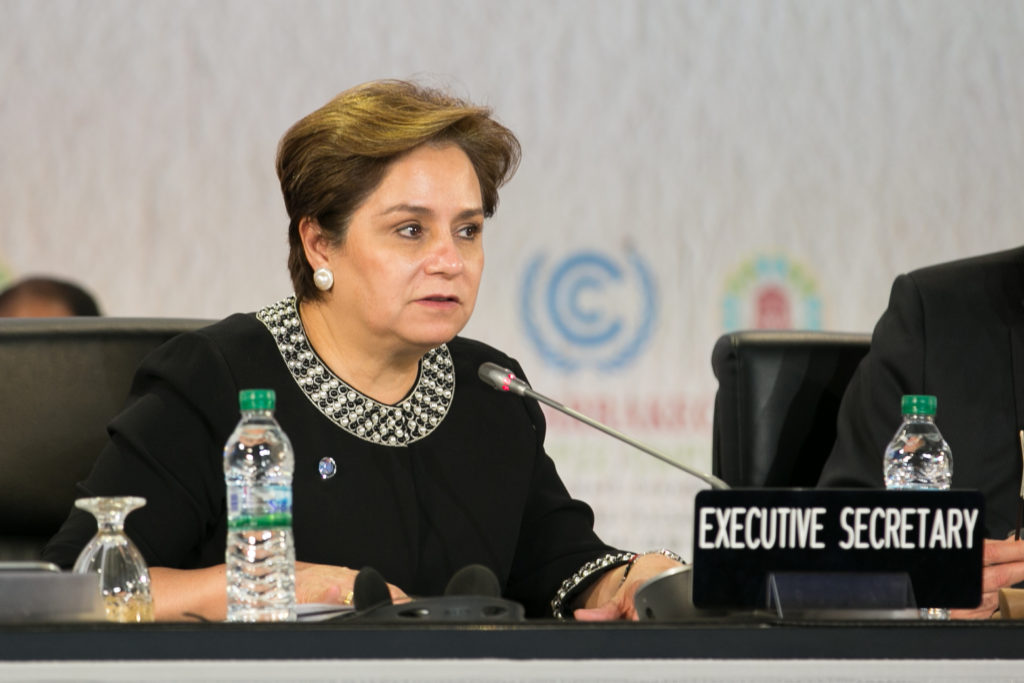Through a series of online events held during the UNFCCC Climate Dialogues, 27 countries shared the latest updates on their climate actions.

These events are organised as part of the multilateral processes set up in 2010 under the Convention to enhance transparency in addressing climate change. The transparency processes enable countries to exchange views on climate actions and better understand what is needed to strengthen their capacities for further actions.
Highlighting the importance of the transparency process to build trust among governments and increase climate ambition, UNFCCC Executive Secretary, Patricia Espinosa, said: “By maintaining momentum on critical transparency processes over the past year, Parties have also maintained action. We must keep it up.”
Facilitative Sharing of Views
For developing countries, Parties undertook the Facilitative Sharing of Views (FSV) under the process of International Consultation and Analysis (ICA) from November 24 to 27, 2020.
A total of 17 developing countries – Azerbaijan, Brazil, China, Colombia, Côte d’Ivoire (Ivory Coast), El Salvador, Georgia, Indonesia, Mexico, Moldova, Montenegro, Namibia, Panama, Papua New Guinea, Paraguay, Singapore and South Africa – presented updated information on their progress with climate actions and highlighted capacity building needs during the 9th workshop of FSV.
This is the largest number of Parties that have participated in an FSV workshop since the initial workshop was convened in 2016.
Discussion during the workshop demonstrated that developing countries are stepping up their efforts in taking climate actions with increasing ambition. Many countries indicated they are on track to meet their 2020 pledges, while a number of countries shared their new initiatives.
For example, during its national presentation at this workshop, China highlighted its recently announced long-term goal to achieve carbon neutrality by 2060.
Presentations during the FSV workshop showed that developing countries are making efforts to strengthen their climate legislation in order to mainstream the climate change agenda into national planning processes and increase predictability of climate actions.
To achieve the mid-term targets and long-term goals, developing countries are increasingly adopting more robust mitigation strategies and policies. Some examples presented during the workshop include Namibia’s feed-in tariff programme to promote renewable energy, the emission trading schemes in China, and carbon taxes in Colombia, Mexico, Singapore and South Africa. In addition, Singapore shared its plan to phase out internal combustion engines by 2040.
In addition, many developing countries highlighted their progress in formalizing institutional arrangements and data sharing agreements to establish a sustainable system to prepare relevant data and meet the reporting requirements for climate transparency.
Multilateral Assessment
Over the last two weeks, 10 developed country Parties – Australia, the European Union (EU), Finland, Germany, Italy, Netherlands, Norway, Portugal, Sweden and Switzerland – took part in a virtual Multilateral Assessment, as part of the International Assessment and Review process.
In terms of overall progress, all 10 countries are on a path to meeting their 2020 targets, with a number of them set to overachieve. For some, this will be achieved through domestic measures alone, but others will rely on international market-based mechanisms to help close the gap.
As they shift to a post-2020 perspective, countries also increasingly referred to their longer-term ambitions. For example, the EU referred to plans to enhance its national climate action plan (known as NDC) and implement a new climate law; Finland noted its ambitions to reach carbon neutrality by 2035; and Sweden spoke of its aims to generate negative emissions post-2045.
From a different perspective, the Netherlands outlined how broad stakeholder engagement and a strong legal framework are key to fulfilling their emissions reductions commitments. By providing clarity on their future plans through low-carbon strategies and national targets, countries are also building confidence that the temperature goals of the Paris Agreement can be reached.
